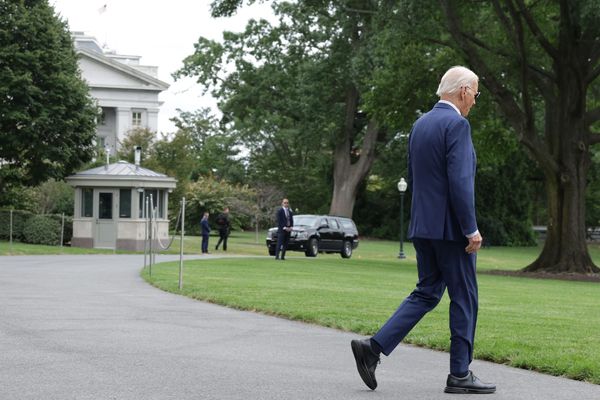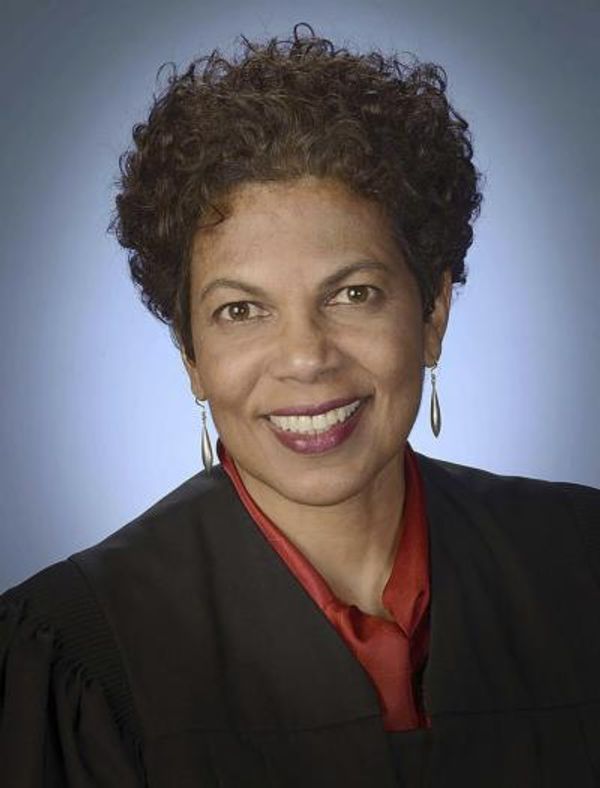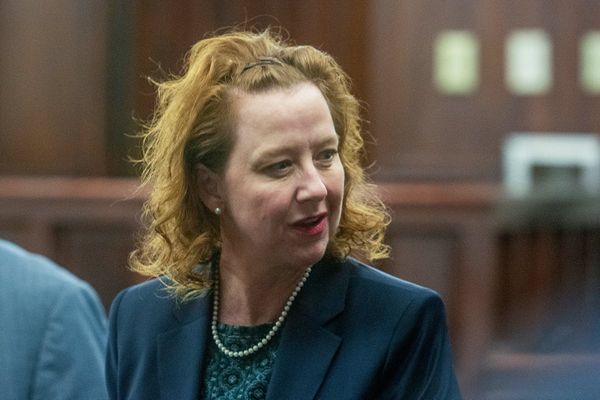
Baghdad (AFP) - Despite a rocket attack on Baghdad's Green Zone, Iraqi lawmakers Thursday elected a new president who swiftly named a prime minister in hopes of ending a year of political gridlock and violence in the war-scarred nation.
Abdul Latif Rashid, a 78-year-old Iraqi Kurd, was elected as head of state, replacing Barham Saleh, by the assembly in the capital's heavily fortified Green Zone government and diplomatic district.
Rashid won more than 160 votes against 99 for the incumbent Saleh, an assembly official said.
The new president swiftly named Shiite politician Mohammed Shia al-Sudani as prime minister-designate, tasking him with reconciling feuding Shiite factions and forming a government a whole year after Iraq last went to the polls.
The 52-year-old Sudani, who has the backing of influential pro-Iran factions, vowed to form a government "as quickly as possible", but faces the daunting task of winning over their rivals, the millions of diehard supporters of fiery cleric Moqtada Sadr.
When Sudani was first proposed in July, the move sparked mass protests by Sadr's followers, who breached the Green Zone and stormed parliament.
He now has 30 days to form a new government capable of commanding a majority in parliament.
"I shall spare no effort to form a strong government," Sudani said in a televised speech, vowing to work with "all political forces and elements of society".
He also promised the youth he would confront problems such as "the lack of (public) services, poverty, inflation and unemployment".
Western governments swiftly welcomed the move to end Iraq's political standoff.
The US State Department called on the new leaders to "bear in mind the will of the Iraqi people" and urged all sides "to refrain from violence and to resolve differences amicably and peacefully through the political process."
The French embassy congratulated Sudani on his nomination and called for the "formation of a government that will do all in its power to answer the legitimate demands of all Iraqi people and especially its youth."
A reminder of Iraq's troubles came earlier in the day as lawmakers headed into parliament, when a barrage of nine Katyusha-style rockets rained down on the area, the security forces said.
At least 10 people were wounded, including six members of the security forces or bodyguards of lawmakers, as well as four civilians in a nearby district, a security official told AFP.
US ambassador Alina Romanowski condemned the attack "in the strongest terms" on Twitter and warned that "the people of Iraq must resolve their political differences & grievances solely thru peaceful means.
"Attacks like these undermine democracy & trap Iraq in a perpetual cycle of violence."
'Crisis breeds instability'
The democratic institutions built in oil-rich Iraq since the 2003 US-led invasion that toppled dictator Saddam Hussein remain fragile, and neighbouring Iran wields major influence.
For just over a year now, Iraq has had only a caretaker government to tackle an array of pressing problems, including unemployment, decaying infrastructure, corruption and the impacts of climate change.
The United Nations mission in Iraq warned this week that "the protracted crisis is breeding further instability" and that the divisive politics are "generating bitter public disillusion".
Lawmakers had made three previous attempts to elect a new head of state, in February and March, but failed to even reach the required two-thirds threshold for a quorum.
Under Iraq's post-Saddam power-sharing system, meant to avoid more sectarian conflict, the president by convention is Kurdish, the prime minister a Shiite Arab and the parliament speaker a Sunni Arab.
The presidency has usually been held by the Patriotic Union of Kurdistan (PUK) of Rashid and Saleh.This year the rival Kurdistan Democratic Party (KDP) had demanded the presidency but ultimately abandoned the bid.
Rashid, a hydraulic engineer versed in environmental issues, is seen as a compromise candidate for the polarised country.
Iraq's rival Shiite political factions, the most powerful players, have been bitterly vying for influence.
Sadr has pushed for parliament to be dissolved to clear the way for fresh elections, while the rival Coordination Framework, to which the prime minister-designate belongs, insisted that a new government be formed first.
The standoff has seen both sides set up protest camps in the Green Zone this year.
Tensions boiled over on August 29 when more than 30 Sadr supporters were killed in battles with Iran-backed factions and the army.
Political analyst Ali al-Baidar said he could not rule out an escalation between the opposing sides but said he thought it more likely that a backroom deal had been done under which the Sadrists will receive additional cabinet posts in return for their tacit approval of Sudani's nomination.







